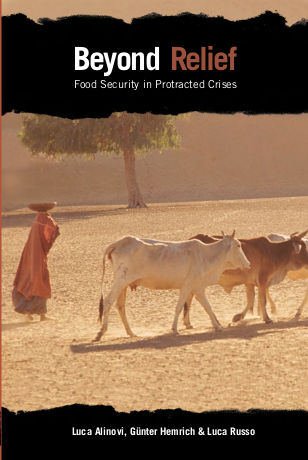
Over the years, it has become clear to many working in humanitarian and development fields that an increasing number of crises do not fall neatly into either of these broad categories. This is particularly true for protracted crisis situations where what were originally considered emergency situations continued over years and even decades. Indeed, it soon became clear that there was a huge policy gap and a lack of suitable frameworks to guide response and longer-term programming in these complex and volatile situations. Therefore, many leading practitioners came together in 2003 in a FAO-sponsored workshop called: ‘Food Security in Complex Emergencies: building policy frameworks to address longer-term programming challenges.’ Discussions at the workshop clearly pointed out the need for more evidence-based research and information regarding protracted crises.
It was therefore decided to commission a series of in-depth case studies on Somalia, Sudan and the Democratic Republic of Congo. All three contexts are notoriously difficult to document as they are extremely volatile, with complex dynamics that are often completely opaque to outside observers. The few attempts made to understand these crises have often been hindered by a lack of information and suitable frameworks, while interventions have been hampered by real danger, including open conflict, and the collapse of institutions. Not surprisingly then, interventions have often been inappropriate and based on generic approaches. And yet, the case studies in this book clearly show that these are precisely the situations where analysis and response cannot be generic and must be based on a deep understanding of the local contexts and structural factors which caused the crises in the first place.
As in many other protracted crisis situations, these case studies show that there has often been a weak link between emergency response and longerterm rehabilitation and development. In fragile states, which often exist in protracted crisis situations, entry points for intervention may not be clear as the state may be very weak or even non-existent. Emergency assistance is usually externally driven, with a risk of being inappropriate and even fuelling conflict. In addition, very few donors commit to longer term development, once the most acute phase of a crisis passes, and so root causes of conflict and crises remain untouched.